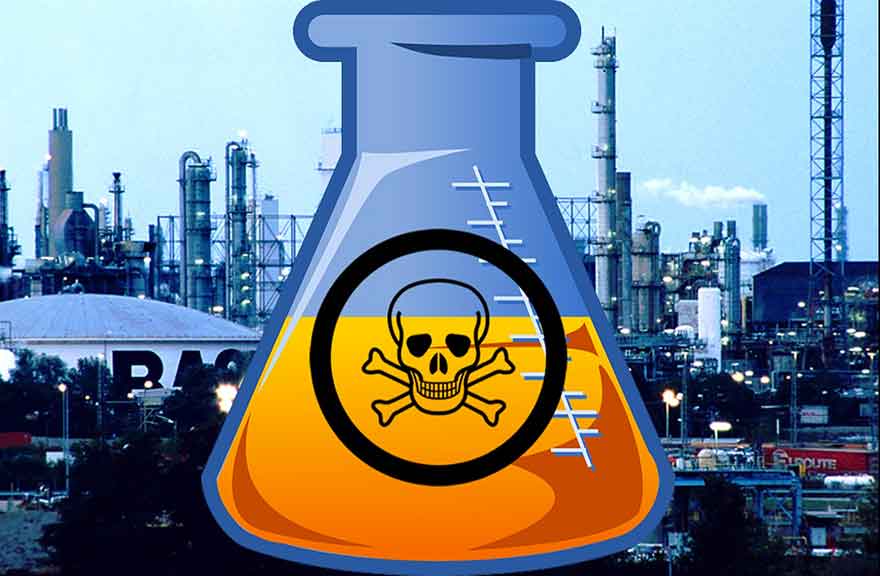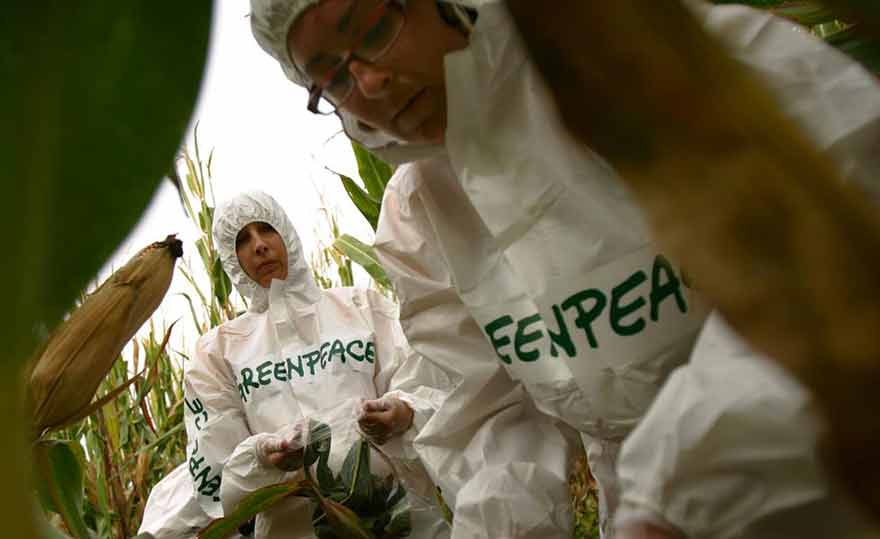Chemical manufacturers producing phytosanitary products and pesticides are engaged in a merciless war to save their business. Public opinion, more or less relayed by the European or national authorities, is upwind against glyphosates, Roundup and other bee-killing neonicotinoids. In this battle, all blows seem to be allowed, from the lowest to the most twisted.
Trucages, truncated or disguised scientific press releases, pressure on elected representatives, fool's games and clever double-dealing, high-density lobbying, everything is good for slowing down or stopping the slightest attempt to hinder the development of products whose harmfulness is constantly being demonstrated.
Falsified scientific release to save neonicotinoids
The case was exposed by the newspaper... The World who doesn't hesitate to talk about " formaldehyde faking ». In November 2015, a consortium of researchers from several renowned scientific organizations such as CNRS and INRA published a study in the British journal Proceedings of the Royal Society B. This article concluded that thiamethoxam (a neonicotinoid insecticide) has deleterious effects on honeybees.
This study should have served as a scientific basis for obtaining the withdrawal of this type of product without any other form of trial. It was the opposite. Indeed, during the debate at the National Assembly, some deputies did not hesitate to refer to this study and its press release to conclude that neonicotinoids are not harmful to bees!
What the hell happened?
The press release published by the researchers on the occasion of the release of this study indeed specified that the proximity of plots treated with the neonicotinoid insecticide "reduces the life expectancy of foragers". But the press release added: "the researchers did not observe any alteration in the performance of the exposed hives". And, above all, that "the quantities of honey produced were not affected". In short, the insecticide kills the bees but does not prevent the survivors from producing good honey... Understand who will.

This is the aspect of the message that parliamentarians have picked up on. Jura MP Jean-Marie Sermier (LR) thus assured that the performance of the hives, just like the quantities of honey produced, is not affected by the insecticide.
INRA is very embarrassed by this interpretation. The scientific body points out that the study clearly demonstrates the harmfulness of neonicotinoids on bees. This is the main information of their research. The passage in the press release reassuring that honey production is not impacted would have been added, in disagreement with INRA by one of its partners, the organization Terres Inovia. This organization is a technical institute for producers of oilseeds, protein crops and other crops that are in great need of insecticides to ensure their production levels.
According to Le Monde news, the drafting of this press release and the optimistic passage added ultimately has been the subject of intense tension between INRA and Terres Inovia. It is easy to imagine the pressure that the scientists had to endure. The result: a generously stretched pole to defend the insecticides against bees, which the French parliamentarians seized without reluctance. Indeed, they have just decided to postpone the ban on neonicotinoids initially planned for 2017 to the end of 2018, with the possibility of extending this deadline until 2020. This is what the president of the LR group Christian Jacob pleaded: " These products are there to protect crops and those who live off them. You can't measure the disaster of insect crop destruction... ", he said. « You can't say that the beekeeping problem is only related to neonicotinoids... "said RL Jean-Marie Sermier. Mass was said.
Intensive farmers and insecticide producers have a break. However, there is no respite for bees.
Double play to save glyphosate
The authorization of glyphosate, the active molecule in Roundup, expires this Thursday, June 30 in Europe, and doubts remain about its renewal. This flagship product of the industrialist Monsanto has been unleashing passions for years, provoking violent polemics about its harmfulness to both nature and man. Arms deals are multiplying, particularly within the European Commission, whose members are under extremely intense lobbying pressure. A pressure in which all blows are permitted.
It is in this deleterious context that environmental protection associations such as Friends of the Earth or Global 2000 got their hands on internal e-mails from the European Commission (DG Health). These documents show how Brussels is yielding to the demands of the glyphosate lobbies to prevent the disclosure of studies funded by the industry, which scientists and NGOs have been clamouring for.

Vytenis Andriukaitis
The survey conducted by the whistleblower site The Launcher is uplifting. Among the protagonists is a European Commissioner for Health, the Lithuanian Vytenis Andriukaitis, who seems to be a virtuoso practitioner of the double game strategy. Indeed, while publicly proclaiming his independence from Monsanto, this Commissioner does the opposite in his exchanges with his colleagues in the committee. His emails plead for a limited, watered-down publication, even reserved for a "reading room" of the three famous studies attesting to the carcinogenic nature of glyphosate. In essence, the Commissioner for Health is aware of the conclusions of these studies, which are particularly devastating for the chemical industry. Studies carried out by the industry itself! However, subject to their pressure, he recommends publishing only a "watered-down" version, that is the word he uses, or, better still, access to these documents in a reserved room, without any connection to the Internet. A room of the same kind used by the TAFTA negotiators to make their activities more hidden.
The stakes are high. Before June 30, the European Commission must renew the authorization of the Roundup molecule until 2031. This is a considerable market for Monsanto, whose sales in France represent more than 7,900 tonnes of active ingredient and 23,065 tonnes of products marketed each year. A gigantic market suspended from a battle of experts and scientists who, depending on their resistance to pressure from lobbies, are more or less transparent and sincere in their conclusions. The World Health Organization (WHO), for example, assures that glyphosate is carcinogenic. On the other side, the European Food Safety Agency (EFSA) says quite the opposite.
This position is a major boost to a large part of the world's scientific community.
To further complicate matters, a joint UN/FAO body, the Joint Meeting on Pesticide Residues (JMPR) published a study last May, in the midst of the renewal discussion, which concluded: "... Glyphosate is unlikely to pose a carcinogenic risk to humans through dietary exposure. ». A big hit in the NGO and scientific community! Digging a little deeper, they find that the three experts commissioned to conduct the study, including the JMPR Chair, are funded by the glyphosate manufacturers, with Dow, Monsanto and Syngenta in the lead. CQFD.
E-citizens enter the battle
In the face of all these twisted moves, a new phenomenon is emerging. It is citizen mobilization. Movements e-citizens are thus emerging "from the grassroots", outside constituted organizations or NGOs. These are movements that use social networks, online petitions and targeted actions as their main means of pressure.

The Avaaz online platform brought a petition signed by more than two million people to the European Parliament. This action is complemented by targeted operations to create buzz on social networks. Their actors, dressed in jumpsuits and skull masks, become powerful images that are looping around on social networks.
The aim of this mobilisation is to put pressure on Europe's political decision-makers. Will it have the means to do so and will it have sufficient weight in the face of the skillfully orchestrated strategies of industrialists? The latter do not want a vulgar "e-petition" to stand in their way. Moreover, they do not seem at all worried about it. It is true that they have removed many other, much more complicated obstacles. In this matter, they are masters.
Last minute
At the time of publishing this article, the information has just come in: the European Commission announced on Wednesday the extension of the EU authorisation of glyphosate for a maximum period of 18 months.
In an AFP press release, the European executive explained that it had "...a strong desire to improve the quality of life of the European Union's citizens. decided to extend the authorisation of glyphosate for a limited period until the European Chemicals Agency publishes its opinion by the end of 2017 at the latest ». Brussels justified this decision by the refusal of the Member States to " take responsibility "on the subject. A decision made" in the absence of a qualified majority of Member States "says the statement. States are admittedly more concerned about the fate of the United Kingdom. An unhoped-for opportunity for industrialists to pass in extremis, in the shadow of Brexit, a measure that still guarantees their prosperity to some extent.

Header image : @ AFP/YASUYOSHI CHIBA












